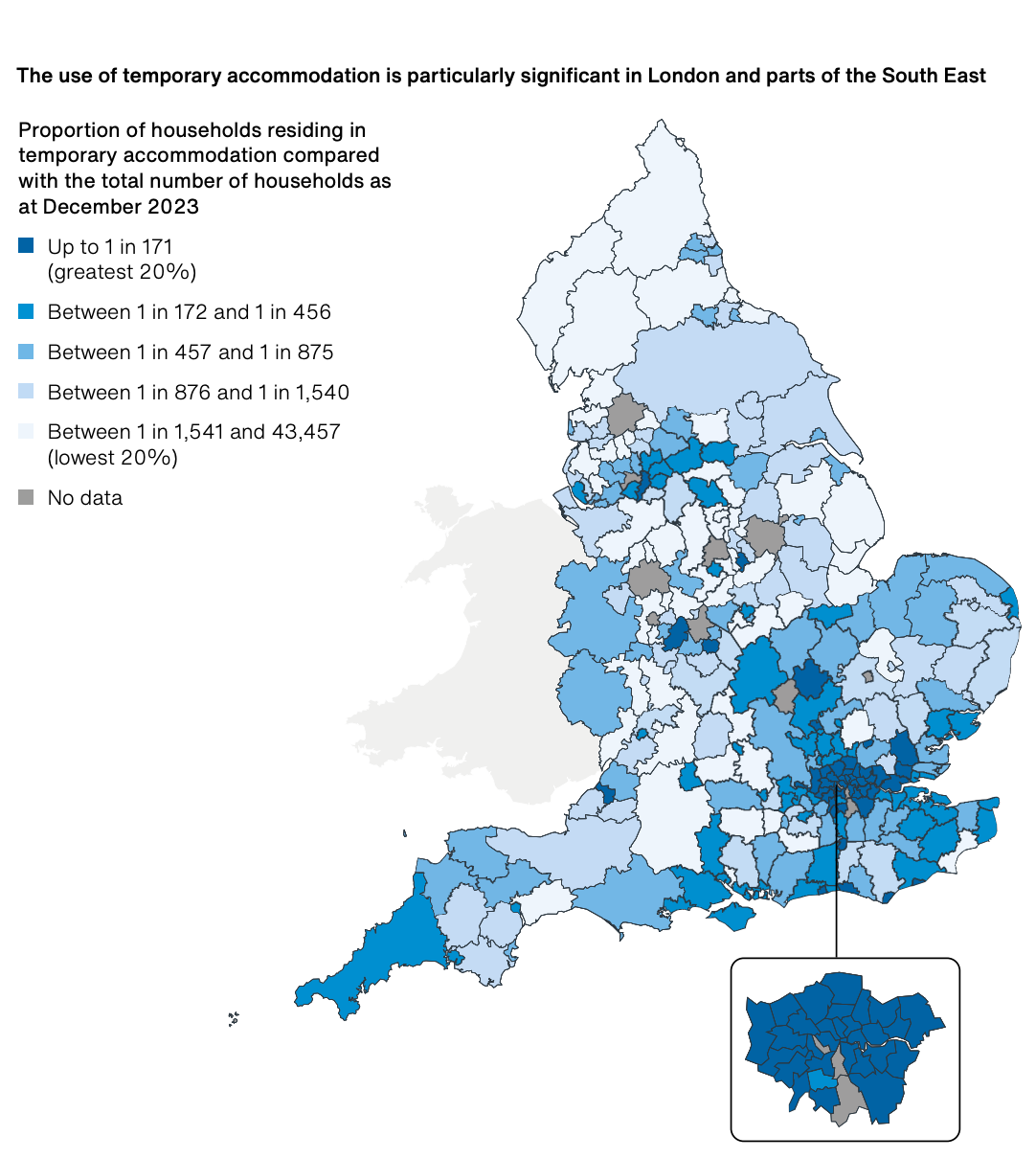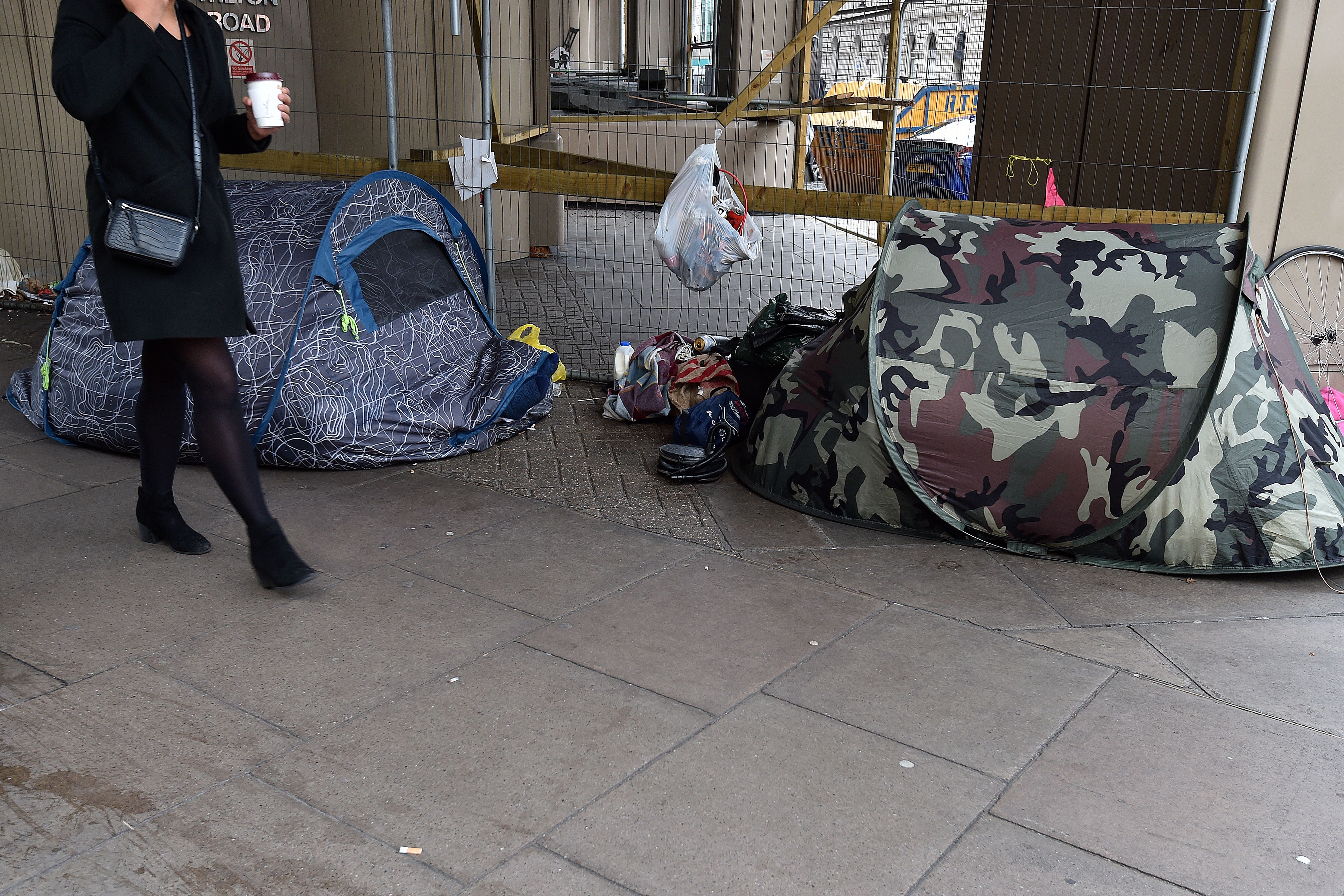Councils spending half their budgets on homelessness as problem hits record high, damning report finds
Government has failed to tackle the issue despite higher funding, National Audit Office report says

Local authorities are spending as much as half their budgets tackling the UK’s homelessness crisis in the UK, a damning new report has found.
In 2022/23, £2.4 billion was been spent on homelessness services, more than twice the amount spent in 2010/11, including £1.6 billion on temporary accommodation alone. The huge sums are putting a massive strain on local authority finances, according to the report published by the National Audit Office (NAO) on Tuesday.
The NAO said there was a £204.5 million gap in the funding local authorities received to cover the cost of providing temporary accommodation and the actual costs needed in 2022-23, up by more than £150 million in a decade.
A number of the councils that spoke to the NAO said they would likely have to issue a Section 114 notice due to the costs, similar to bankruptcy, much like authorities in Birmingham last year.
It comes as statutory homelessness is now at the highest level since records began. The latest figures, to December 31 last year, showed a new record high of 145,800 children in temporary accommodation, up by a fifth on 20 years ago when records for this measure began. There were a total of 112,660 households in temporary accommodation in England, of which 71,280 were households with children, by the end of last year.

Local councils are forced to take short-term and non cost-effective measures to meet the rising demand, the NAO said.
These local authorities will often look to temporary accommodation as a short-term measure, often placing people in bed and breakfasts. This practice has sky-rocketed over the past few years, with 15,950 households in bed and breakfasts in 2023/24, a 42 per cent increase in two years.
And even though keeping households in such accommodation for longer than six weeks is unlawful, there are still almost 3,000 households with children stuck in this situation.
Some authorities will even turn to booking a bed and breakfast on the same day they need it, the report’s authors found, a practice that is cost-effective and causes stress for families who don’t know where they will be staying.
Around a quarter of households applying for homelessness support in 2023/24 did so after the ending of a private rental tenancy.
Government housing benefit rates have been outpaced by rental price increases in the past year, the NAO points out, meaning more people are being pushed into homelessness.
The findings show that a mixture of council underfunding and increased costs to households is creating an unsustainable environment.

The report recommends that the Department for Levelling Up (now the Ministry of Housing) consider how it might better support local authorities and give them the funding to make plans in the long-term.
The Independent recently reported on the plight of households, many with children, who are being refused housing help by under-pressure councils.
The NAO said the Ministry of Housing must provide local authorities with greater predictability of funding for homelessness and consider how it can support local authorities to focus more on homelessness prevention. The watchdog called on the Treasury to review and simplify cross-departmental funding for homelessness as part of the next spending review and look at ways to “incentivise” departments to support homelessness prevention.
The report stated: “Funding remains fragmented and generally short-term, inhibiting homelessness prevention work and limiting investment in good-quality temporary accommodation or other forms of housing.
“Until these factors are addressed across government, DLUHC (Department for Levelling Up, Housing and Communities) will not be able to demonstrate that it is delivering optimal value for money from its efforts to tackle homelessness.”
Claire Holland, housing spokesperson for the Local Government Association, said homelessness and the lack of affordable housing “is one of the most urgent issues facing councils” and that “without concerted effort, the situation will only get worse”.
The LGA welcomed the NAO recommendations, and called for the Section 21 “no-fault” evictions ban to be brought in and “empower councils” to build more affordable homes
A spokesperson for the Ministry of Housing said: “Homelessness levels have sky-rocketed and too many families are living in temporary accommodation. We will take the action needed to tackle this issue and develop a long-term, cross-government strategy working with Mayors and Councils to put Britain back on track to ending homelessness.
“We welcome the NAO’s report which shines a light on this important issue and will consider their recommendations as we develop our strategy.”
Join our commenting forum
Join thought-provoking conversations, follow other Independent readers and see their replies
Comments
Bookmark popover
Removed from bookmarks